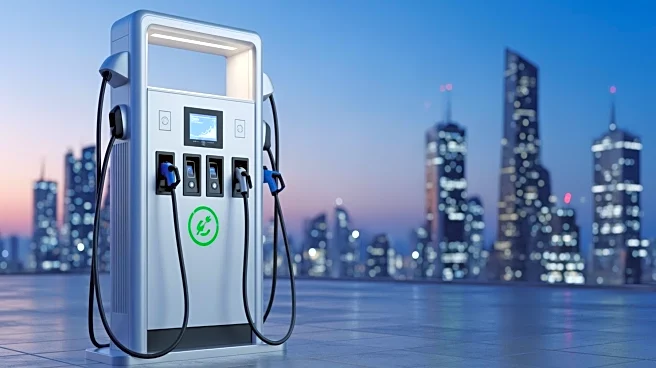What's Happening?
Electric vehicle manufacturer Rivian is set to lay off approximately 600 employees, which constitutes about 4% of its workforce. This decision follows a previous reduction of 1.5% of its workforce, primarily
affecting the commercial team. The layoffs are part of Rivian's strategy to enhance operational efficiency as it prepares for the launch of its R2 model, scheduled for 2026. The company is also responding to recent changes in U.S. government policies that ended electric vehicle consumer tax incentives on September 30. These incentives previously offered up to $4,000 for used vehicles and $7,500 for new vehicles. Rivian's R1S and R1T models only qualified for $3,750 in incentives due to compliance with critical mineral sourcing requirements.
Why It's Important?
The layoffs at Rivian highlight the challenges faced by electric vehicle manufacturers in adapting to changing government policies and market conditions. The removal of tax incentives is expected to impact electric vehicle sales, putting additional pressure on companies like Rivian to reduce costs and maintain competitiveness. The company's decision to cut jobs reflects a broader trend in the industry as automakers strive to balance operational efficiency with the need to innovate and expand their product offerings. Rivian's focus on launching the R2 model underscores its commitment to growth despite financial challenges, including a reported net loss of nearly $1 billion in the second quarter.
What's Next?
Rivian is likely to continue implementing cost-cutting measures as it prepares for the R2 model launch. The company may also explore alternative strategies to offset the impact of the discontinued tax incentives, such as enhancing its leasing options, which previously allowed customers to benefit from a $7,500 credit. As the electric vehicle market evolves, Rivian will need to navigate regulatory changes and competitive pressures to sustain its growth trajectory.











